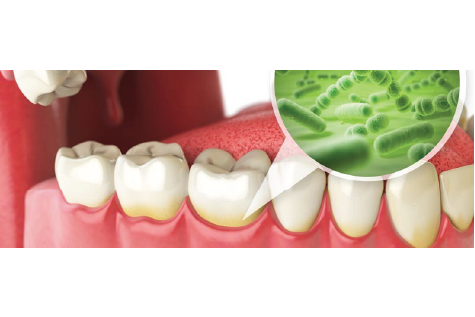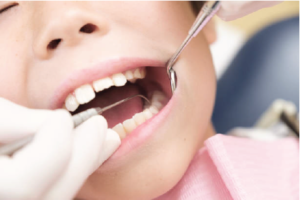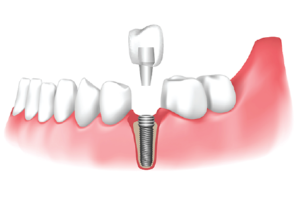Does acid reflux from the stomach damage your teeth?

It’s not just the food pipe you should be worried about if you suffer from chronic heartburn or stomach acidity problems. New research shows how the inflow of acid into your oral cavity due to a condition known as gastroesophageal reflux disease, or GERD can severely harm teeth and cause sensitivity. Continuous exposure to these stomach acids will wear away the enamel of teeth, a process known as tooth erosion.
How teeth are affected by digestive issues?
Your stomach naturally produces acids that help your body digest food. Occasionally, acidity, also known as acid reflux, occurs as stomach acid passes up the food stream. Gastroesophageal reflux disease (GERD) is a chronic, more extreme type of acid reflux. In this disease, gastric acids enter the mouth during the day as well as while you’re asleep. The acid from the stomach is sufficiently strong to erode the enamel on the chewing and inner surfaces of the teeth.
What signs and symptoms will you notice?
Sensitivity when drinking hot or cold drinks is the most common symptom felt by patients. You could also note the yellow discoloration of your teeth or find that the colour of your fillings has changed. There is an increased risk of developing cavities. Abscess and tooth loss can also be noticed in severe conditions.
What are the treatment options available if your teeth are damaged?
The damage caused by tooth erosion is permanent. If your enamel has begun to wear away, you may need fillings, a root canal treatment, crowns, or even tooth removal and replacement if the damage is severe. Veneers may be an option to restore the natural look of your front teeth.
How to protect your teeth if you have frequent acid reflux?
- Visit your gastroenterologist
Visit your specialist to identify and treat the underlying cause. Your doctor may advise you on ways to manage your acid reflux.
- Chew a piece of sugar-free gum:
Chewing sugar-free gum stimulates the production of saliva, which helps neutralise the acids in your oral cavity. Saliva also helps in strengthening the enamel with minerals.
- Review your diet
Consuming certain foods can increase the amount of acid in the stomach. This can result in an increased incidence of acid reflux and heartburn. Diet modifications as well as eliminating certain foods will help to reduce the frequency of acid reflux.
- Avoid alcohol and smoking:
Avoiding alcohol and smoking and not eating 3 hours before bedtime will minimise the frequency of acid reflux episodes.
- Do not brush your teeth immediately after an acidic reflux episode or an acidic meal:
Wait an hour or two, before brushing. Use a soft toothbrush and gently brush your teeth. Acidic food weakens the tooth enamel. Brushing your teeth soon after an acidic meal can damage the enamel in a weakened state.
- Use fluoridated toothpaste:
Prescription or over-the-counter fluoride and de-sensitizing toothpaste can help to remineralise and strengthen the tooth enamel.
- Visit your dentist regularly:
Make sure to visit your dentist regularly, at least once every six months. He or she may recommend ways to stop and prevent the erosion of enamel. Certain mouth guards are also helpful in reducing the impact of acid reflux. When there is more serious damage, the dentist will recommend certain procedures to repair your teeth.
The best way to control enamel erosion is to avoid it from occurring in the first place. If you experience signs and symptoms of acid reflux and enamel loss, a combination of medical and dental approaches, as well as improvements in diet and lifestyle, will help you manage this unpleasant condition.
Why you should take care of your child’s milk teeth
Why you should take care of your child’s Milk Teeth...
Read MoreShould you replace missing teeth
Should you replace missing teeth? You might think that you...
Read MoreWhy Your Dentist Would Recommend BRACES Even Though You May Have Straight Teeth?
Why Your Dentist Would Recommend BRACES Even Though You May...
Read MoreWhy is dental hygiene important during covid-19 pandemic
WHY IS DENTAL HYGIENE IMPORTANT DURING COVID-19 PANDEMIC? Hygiene is...
Read More
Dr. Paresh Lotlekar is a leading dental practitioner specialising in Periodontology & Oral implantology and the founder of STUDIO32 (studio32india.com), a chain of super speciality dental clinics in Goa.





